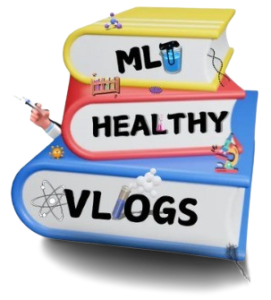Table of Contents
ToggleMedical Laboratory Technology:
Interested in science and healthcare and Medical Laboratory Technology ? Consider obtaining a Medical Lab Technician (MLT) diploma.? These specialists are essential in the diagnosis and treatment of various illnesses. What is the diploma? And why would I want to get a diploma for starting / working in healthcare?
How would you define a Medical Lab Technician?
A vital component of the healthcare team are medical lab technicians. They work in a back room, working with samples such as blood and tissue. Their discoveries aid doctors in making precise diagnoses.’ How can one become an MLT? What are the requirements?
Understanding the Program Structure.
An Associate of Science degree is typically earned in a two-year period during most MLT programs.
It combines classroom instruction with hands-on lab experience. Advanced laboratory equipment and information systems are utilized by students. Prepare to engage with advanced techniques in microbiology, hematology, and clinical chemistry.’
The program involves students taking part in clinical rotations in various healthcare settings towards the end. This practical experience is highly beneficial for those who want to prepare for the workforce.’
Certification in medical lab technology: A Key Step.
Why does certification matter? Most graduates go on to national certification after completing their diplomas. The American Society for Clinical Pathologists (ASCP) certification is one of the most prestigious.
Eligibility criteria must satisfy both education and clinical experience for students to be eligible. Other licensure criteria are also required in some states.
Exploring Career Opportunities.
Various Work Environments: MLTs are employed in hospitals, clinics, public health lab and biotechnology companies.[A].
Increasing job security and demand for skilled technicians. A 5% increase is projected for the next decade, and many program graduates are soon employed.
Higher education is a way for ambitious individuals to advance their careers. Opportunities for employment in management or research are available through bachelor’s degrees in related fields.
Key Skills You Will Develop.
Phlebotomy, chemical analysis, and blood typing are among the routine lab procedures taught in MLT programs, which require technical expertise.
Problem-Solving and Analysis: Technicians are required to accurately interpret results and comprehend their implications in a clinical setting.
The utilization of advanced laboratory equipment is essential.cfm. Programs ensure that students are comfortable with the technology employed in contemporary healthcare labs.
Admission and Costs:
The cost of tuition for students varies depending on the institution. Be prepared for the cost of books, materials and residing expenses.
Programs usually mandate a high school diploma or equivalent for admission. What are the requirements? It is possible for individuals to require prerequisites such as chemistry or biology.
Programs typically have a formal application process that involves the submission of transcripts and standardized test scores.
What’s the latest news from the field?
The field of medical laboratories is characterized by innovative and dynamic developments. The combination of robotics, AI, and data analysis can be advantageous for graduates….
Maintaining up-to-date knowledge is crucial for continuing education. A lot of employers endorse additional training and certifications.’
Conclusion.
With a diploma in Medical Laboratory Technology, one can expect specialized fields of study as well as career advancement opportunities. The program combines science and technology, equipping graduates with crucial healthcare roles. An MLT career offers job security and the opportunity to make a difference. Why choose this path? The right diploma could be the key to launching a career or building on existing skills.
